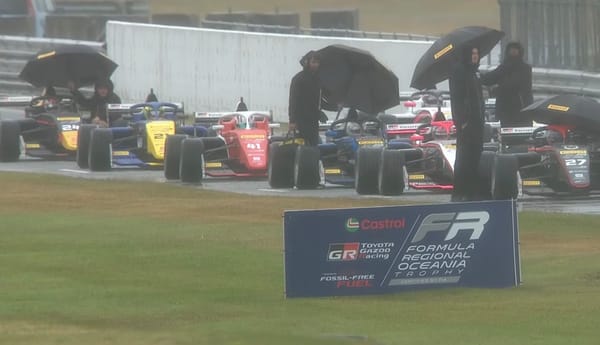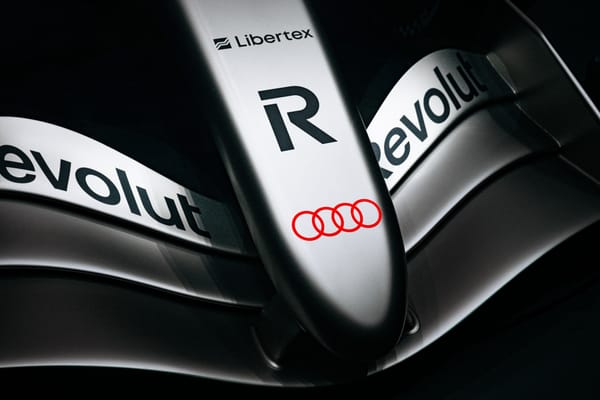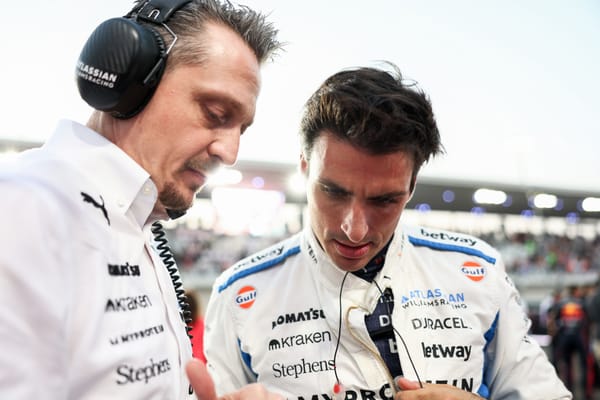McLaren swiftly denies report of Audi buy-out

McLaren has issued a firm denial to reports it has been bought by Audi.

McLaren Automotive gets the key to its new McLaren Composites Technology Centre in Yorkshire. (McLaren)
"McLaren Group is aware of a news media report stating it has been sold to Audi," read a brief statement.
"This is wholly inaccurate and McLaren is seeking to have the story removed."
UK publisher Autocar published the initial report after the Sao Paulo Grand Prix.
"An Autocar source reports that Audi has bought McLaren in a deal that gives the German manufacturer complete control over the whole group and secures it an entry into Formula 1," reported Autocar.
"From an F1 point of view, the deal ensures the Volkswagen Group, which owns Audi, now has direct access to an entry into grand prix racing."
"Volkswagen has been involved in discussions over the specification of a new F1 powertrain due for introduction mid-decade and has been openly considering a commitment to the pinnacle of motorsport."
McLaren's denial was swift, with key figures immediately sharing the statement.
The article was removed from the Autocar site.
"McLaren’s technology strategy has always involved ongoing discussions and collaboration with relevant partners and suppliers, including other carmakers, however, there has been no change in the ownership structure of the McLaren Group," said a McLaren spokesperson.
There was no such denial from Audi.
An Audi spokesperson told Reuters "as part of our strategic considerations, we are constantly looking at various cooperation ideas."
Autocar article
An Autocar source reports that Audi has bought McLaren in a deal that gives the German manufacturer complete control over the whole group and secures it an entry into Formula 1.
The change of ownership should secure the future of McLaren, which has been operating under heavy financial pressures despite an injection of capital late last year following a refinancing worth up to £500 million. It is unclear whether the latest development is linked to the recent departure of McLaren CEO Mike Flewitt, who stepped down from his role after eight years last month.
McLaren stated there has been no change at a management level, while an Audi spokesperson had no official comment to add at this stage.
The takeover gives Audi access to another supercar brand alongside Lamborghini, which it controls. It also opens up the possibility of Audi engines powering McLaren. It will not, however, give Audi control of McLaren Applied, the arm of the group that specialises in electrification systems for both road and track, as that was sold to a private investment group earlier this year.
It is unclear what the implications of any Audi-McLaren tie-up would be on the now-finalised partnership between Rimac and Bugatti, which has been devised with the aim of developing all-electric successors to the Nevera EV hypercar and the soon-to-be-retired Bugatti Chiron.
From an F1 point of view, the deal ensures the Volkswagen Group, which owns Audi, now has direct access to an entry into grand prix racing. Volkswagen has been involved in discussions over the specification of a new F1 powertrain due for introduction mid-decade and has been openly considering a commitment to the pinnacle of motorsport.
The deal does not necessarily close the door on a Porsche entry to F1, either. The Audi sibling brand is also considering a return to F1, as new motorsport boss Thomas Laudenbach told Autocar recently.
It is thought the most likely route for Porsche into F1 would be as a powertrain partner to an existing team, with Red Bull – which is currently building its own independent powertrain department in Milton Keynes – considered to be the most likely option for such a deal.
- Damien Smith, Autocar
McLaren Statement
McLaren Group is aware of a news media report stating it has been sold to Audi. This is wholly inaccurate and McLaren is seeking to have the story removed.
McLaren’s technology strategy has always involved ongoing discussions and collaboration with relevant partners and suppliers, including other carmakers, however, there has been no change in the ownership structure of the McLaren Group.





